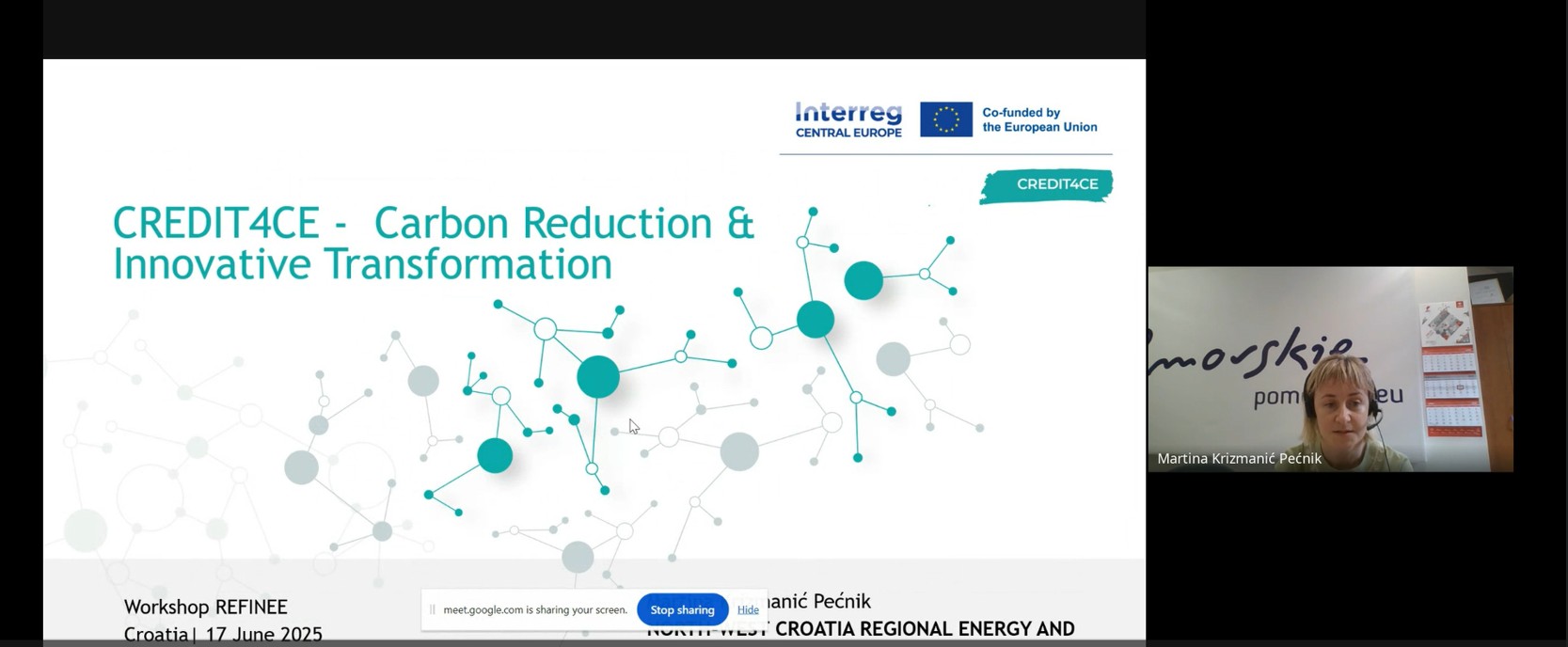The workshop aimed to exchange experiences and best practices among European projects that support small and medium-sized enterprises (SMEs) in improving energy efficiency and investing in low-carbon technologies.
Two flagship initiatives were presented during the event – CREDIT4CE, introduced by Martina Krizmanić Pećnik from REGEA – North-West Croatia Regional Energy and Climate Agency, and WESHARE, presented by Anna Rita Giacovelli from RIMOND.
The workshop opened with a presentation of the CREDIT4CE project, delivered by Martina Krizmanić Pećnik (REGEA). The session outlined the project’s main objectives, key results, and ongoing achievements, while also reflecting on common implementation challenges. The discussion addressed topics such as the management and adaptation of KPIs, risk mitigation strategies, partner engagement, and effective communication within the consortium.
Building on this, the presentation showcased how CREDIT4CE supports SMEs in their decarbonization journey through practical digital tools, including a carbon calculator, online platforms, and Decarbonization Hubs that foster collaboration and innovation. Complementing this approach, the WESHARE project promotes the development of Business Energy Communities (BECs) in Portugal, Spain, and Belgium, helping to overcome financial, legal, and technical barriers to energy sharing and collective energy transition.
The second presentation, delivered by Anna Rita Giacovelli and Alessandra Cassisi from the WESHARE project, focused on lessons learned in ensuring effective coordination and dissemination. The speakers reflected on their experiences managing project indicators, sustaining collaboration among partners, and reaching their communication and dissemination goals.
Each presentation was followed by an open discussion, encouraging participants to exchange insights and share solutions to common challenges. The debate underscored the importance of inter-project collaboration and cross-learning as key factors in improving the effectiveness and sustainability of EU-funded initiatives.
In closing, the chair from IRENA expressed gratitude to all participants for their contributions and underscored the importance of ongoing cooperation and mutual learning among EU projects. Strengthening these synergies is essential to advancing the European Union’s broader goals of innovation, capacity building, and sustainable development.
Throughout the workshop, participants from across Europe explored opportunities for collaboration, financing solutions, and policy challenges. Discussions highlighted that
stakeholder engagement, financial accessibility, and cross-sector cooperation are key enablers for a sustainable and scalable green transition for European SMEs.
The two-hour session concluded with a shared commitment to maintain open communication and to continue exploring avenues for collaboration, ensuring that EU projects can work together effectively to support a greener and more innovative future.
